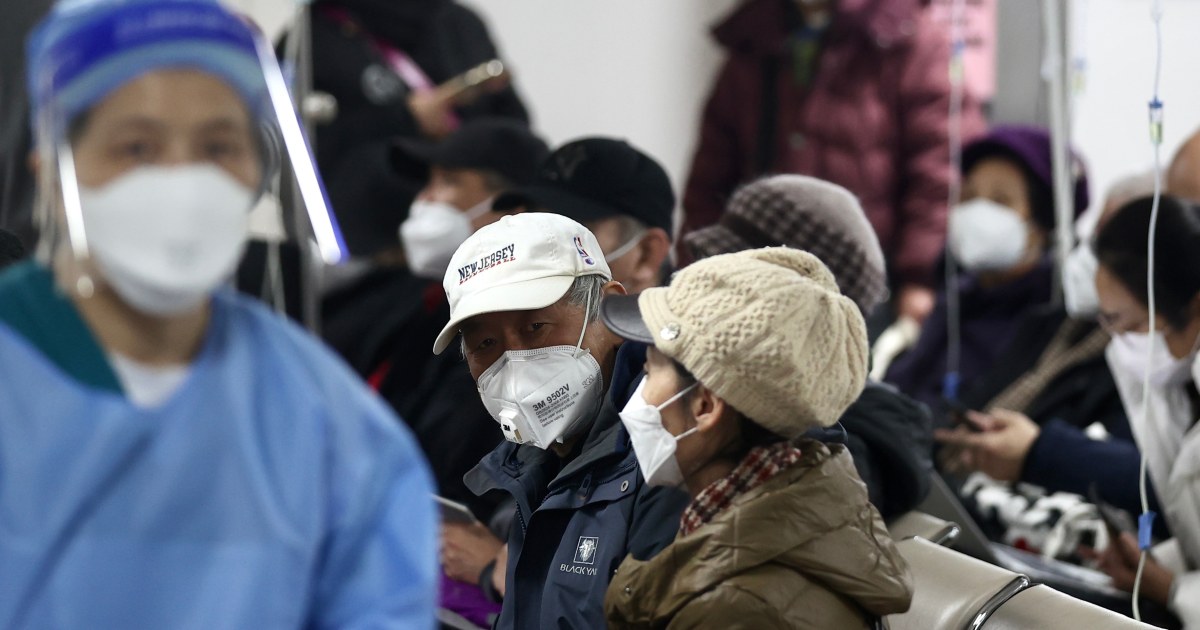WASHINGTON — Beginning January 5, the United States will require a negative pre-departure COVID test for anyone flying from China, the Centers for Disease Control and Prevention announced Wednesday. The new policy comes amid a spike in covid cases and fears a worrying new variant could emerge.
NBC News previously reported that travel requirements were under consideration. Federal health officials said a lack of adequate and transparent Covid data in China — specifically, viral genomic sequence data — led to the decision, making it difficult for US public health officials to identify new variants.
Officials said they are waiting until January 5 to give airlines enough time to implement the change and will continue to monitor going forward to decide when to lift the requirement.
The CDC is also increasing screening for travelers arriving in the US who may have covid by expanding the genomic traveler surveillance program to include Seattle and Los Angeles (LAX) airports. That brings the total to seven airports in the program.
Federal officials have raised concerns that China’s previous zero-covid policies could lead to large numbers of hospitalizations and deaths there now that they have removed most measures and their population may lack immunity to circulating omicron subvariants. at the moment.
The officials said the United States has continued to offer its support and assistance to China on covid, including vaccine doses. China has publicly said it appreciates the offer but does not need the support at this time, the officials said.
How the tests will work
Travelers to the US should get tested no more than two days before their departure, regardless of their nationality or Covid vaccination status, the CDC said. The requirement applies to all air passengers 2 years and older departing from China, Hong Kong, or Macao.
People who have been in these areas in the last 10 days and connect to the US through Incheon International Airport in South Korea or Toronto Pearson or Vancouver International Airports in Canada must also provide proof of Covid negative no more than two days before your departure to US
The US will accept a PCR test or antigen self-test administered and monitored via telehealth and approved by the Food and Drug Administration or equivalent national health authority. Those who have recently recovered from Covid (have tested positive more than 10 days ago) can also provide proof of recent recovery. It is up to the airlines to deny boarding to people who cannot present proof of negative test or recovery.
Other countries instituted similar policies earlier this month. Japan said on Tuesday that all travelers from mainland China would be screened upon arrival and Malaysia stepped up monitoring and surveillance of travelers from China.
Taiwan said Wednesday that travelers from mainland China would have to take a PCR test upon arrival, and those who test positive would be allowed to self-isolate at home. India last week said it would make virus tests mandatory for travelers arriving from China, as well as Japan, South Korea, Hong Kong and Thailand. As in Japan, anyone who tests positive will be required to self-quarantine.
Chinese Foreign Ministry spokesman Wang Wenbin said Wednesday that all countries should «fight the epidemic scientifically, work together to ensure safe travel between countries, maintain the stability of global industrial and supply chains.» and restore healthy growth to the world economy.”
Wang also said the COVID situation in China was «generally within expectations and under control,» and accused Western media of smearing China’s anti-Covid efforts while downplaying the earlier pandemic chaos in their own countries.
Earlier this month, China abruptly eased its «covid zero» approach following mass protests, scrapping internal rules and lifting quarantine requirements for travelers to China. Subsequently, the number of cases skyrocketed, putting pressure on hospitals and other healthcare facilities.
The World Health Organization has said it is very concerned by increasing reports of severe Covid cases in China and has raised doubts about the figures released by Beijing.
However, Dr. Siddharth Sridhar, a clinical virologist at the University of Hong Kong, said the China outbreak poses little threat to countries like the US, which has a high level of immunity through infections and vaccinations, and that the new requirements for travelers from China were unlikely to be effective.
The omicron variant and its sublineages «always find a way to infiltrate borders and circulate around the world, even through performance constraints like PCR tests,» he said.
Although the wave of infections that is affecting China’s 1.4 billion people could, in theory, give rise to a new variant, as when the delta variant emerged in India early in the pandemic, «still, there is a very good chance that accelerate the rate at which we begin to normalize, said Dr. david owensfounder of OT&P Healthcare in Hong Kong.
«What the United States should be concerned about is vaccinating its own vulnerable,» he added.
Josh Lederman reported from Washington, Jennifer Jett from Hong Kong and Aria Bendix from California.
Reuters contributed.


